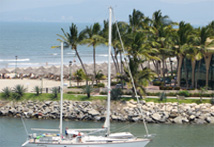The recent influx of asylum seekers in manageable.
By SHEILA COPPS
First published on Monday, August 28, 2017 in The Hill Times.
OTTAWA—Damned if you do. Damned if you don’t.
Such is the dilemma facing Prime Minister Justin Trudeau with the increase in ambulatory migrants arriving from the United States in the wake of American removal rumblings.
News reports say that more than 7,500 people have streamed across the Canada-United States border in the past three months. If that continues, it will mean an additional 30,000 potential refugees annually added to the numbers Canada has already accepted from Syria and elsewhere.
But before we start ringing the alarm bells, let’s draw a small comparison with refugee numbers in major European destinations.
According to the International Organization for Migration, 2015 figures reveal about one million migrants arrived on European shores by sea and an additional 34,900 by land. The European border patrol authorities estimate a higher figure of 1.8 million during the same period.
According to a BBC documentary, Germany received the highest number of refugees in that year. Hungary actually had the largest number relative to population, absorbing nearly 1,800 refugees per 100,000 people.
That figure underscores the relative absorption capacity by population, which is likely the best indicator of how easily newcomers will be able to settle in.
The second highest absorption rate was actually Sweden with 1,667 refugees per 100,000 people.
Germany, with the highest rate of refugees in sheer numbers, received 587 people per 100,000. After all the Brexit fuss, the United Kingdom actually only welcomed 60 refugees per 100,000. The average for the whole of Europe was 260 per 100,000.
Compare those numbers to this summer’s Haitian influx, and you can draw your own conclusions.
If arrivals continue at the current pace, the country will receive 30,000 people in a year, in addition to other refugee applicants. That represents an absorption rate of 111 refugees per 100,000 population, less than half of the European average. Compare that with nearly 1,800 for Hungary and you can see that Canada’s commitment is not as robust as we like to think.
Of course, the Haitian influx is in addition to the Syrian refugee commitment and the general processing of immigrants via family reunification and business migration.
But even adding in the 25,000 Syrian refugees the Trudeau government admitted in its first few months in power, the country still ends up at 273 refugees per 100,000, which is less than half of what Germany has received.
Conservative immigration critic Michelle Rempel characterized the influx as a “crisis” and both opposition parties blamed the migration spike on a seven-month-old tweet from the prime minister.
Trudeau’s #WelcometoCanada missive coincided with an American immigration crackdown announced on Twitter by President Donald Trump. Trump’s move was eventually overturned by the courts. Rempel called the Trudeau counter-tweet “irresponsible.”
I doubt many Canadians would agree with that accusation. If anything, Canadians are proud of our reputation as a welcoming place, and Trudeau’s January tweet was a breath of fresh air compared to the wall-building and door-closing going on south of the border.
Trudeau’s message of welcome was heard by the whole world, including investors, international students, and others who were analyzing alternatives to American destinations in the face of the crackdown.
Canada’s robust economic growth is probably due, in part, to that viral tweet.
Rempel is careful to claim she does not oppose asylum claims but is speaking out because of the prime minister’s “spectacular failure” in managing the process.
Conservatives must tread lightly on their accusations, because by overstating their criticisms, they run the risk of being accused of mirroring the anti-immigrant stance embraced by the American right.
The sputtering of alt-right demonstrations across Canada last week will likely encourage the Tories to shy away from appearing to oppose immigration. As the Parti Québécois government discovered when it tried to win an election on whipping up division through a Quebec Values Charter, political extremism comes at a price.
Most Quebecers, and Canadians, are proud of our reputation as a welcoming country that can accommodate newcomers and turn immigration into an economic asset.
The government needs to stay the course, and proactively manage the processing of refugees, including accelerating the pace of work permits.
All that to say that the current summer crisis, largely manufactured by a slow domestic news cycle, is not a crisis at all but a trend which good planning and border processes should be able to easily handle.
Opposition parties may try to pin this on the prime minister but they should be wary of success.
An accusation of welcoming the world is one that Trudeau would savour.
Sheila Copps is a former Jean Chrétien-era cabinet minister and a former deputy prime minister. Follow her on Twitter at @Sheila_Copps.

